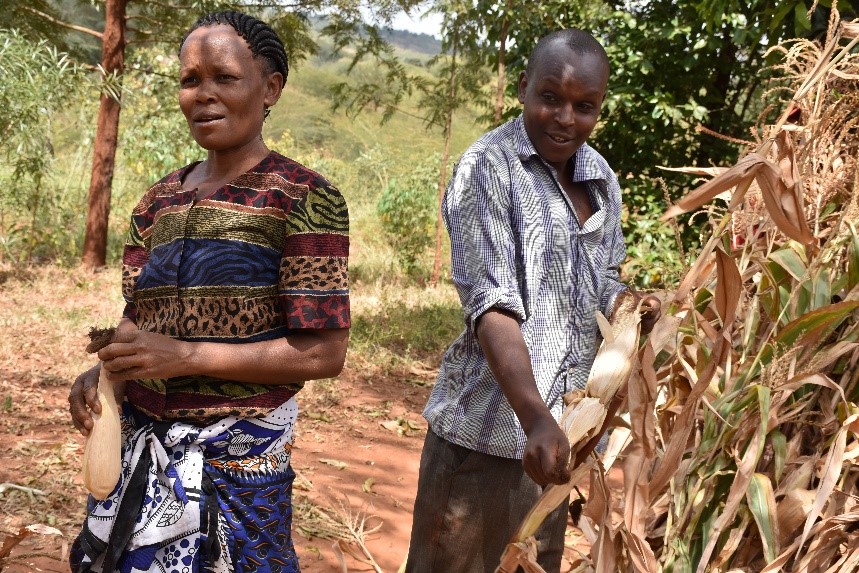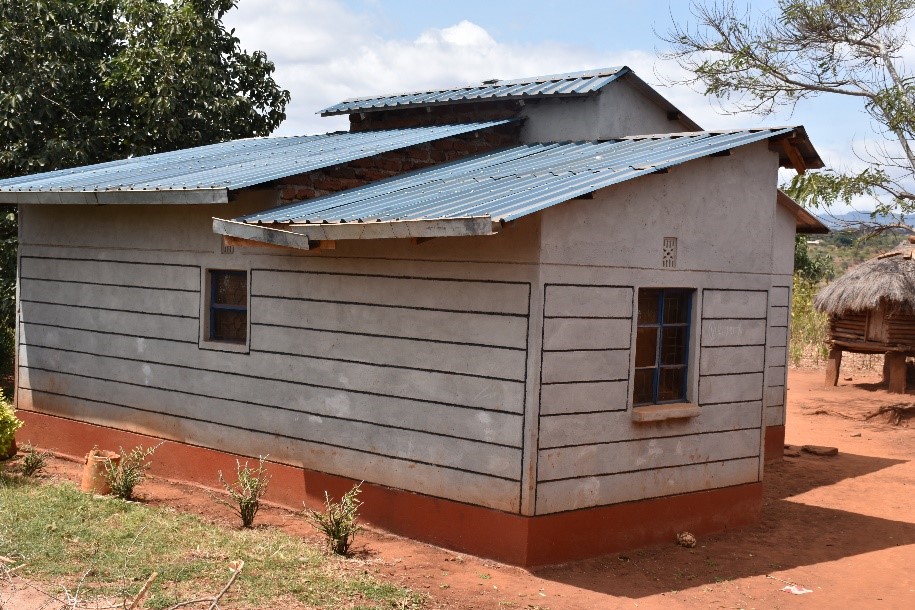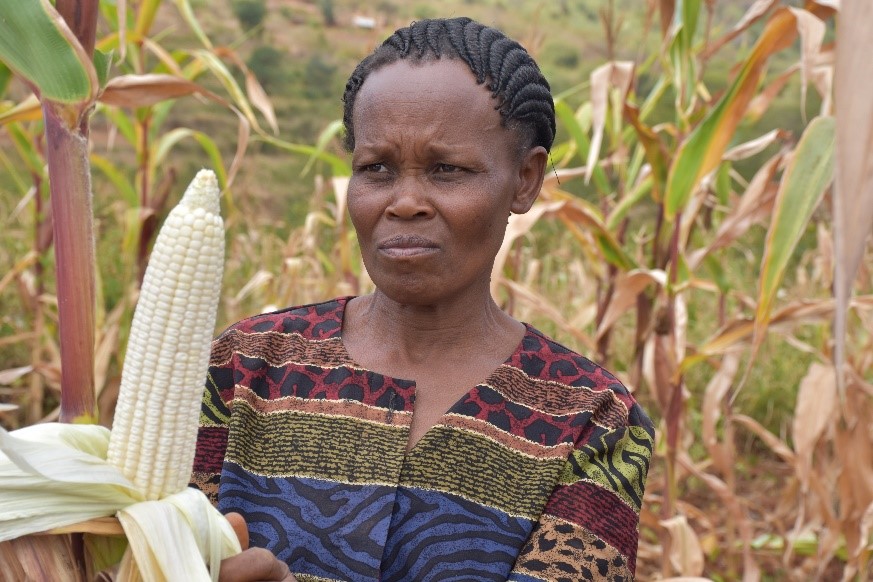
NAIROBI, Kenya (CIMMYT) – Millions of women across Africa continue to drive agriculture and for Francisca Mbula, a mother of five in her late 50s, her successful journey in farming is credited to her 30-year old eldest son Nzioka Kivanga. Mbula’s family lives in Machakos County, a semi-arid area situated in the eastern part of Kenya’s capital Nairobi, and like thousands of other families, they depend on small-scale rainfed farming, which remains a key livelihood even though it is adversely affected by climatic shocks.
Machakos, like several other counties in eastern Kenya, was badly hit with drought that ravaged various parts of the country during the October-December short rains.
Kivanga is not in formal employment but a dedicated farmer. “Sometimes I see his lack of formal employment as a blessing, because without his hard work and zeal for farming I would not have learned about Drought Tego and KDV2 varieties that have changed my farming,” explained Mbula.
Both Drought Tego and KDV2 are modern improved varieties that are drought tolerant and offer better resistance to common maize diseases in this region. He started planting KDV2, an improved open pollinated variety, during March 2014 and a year later planted Drought Tego, an improved hybrid

“The KDV2 maize is very sweet and good for our Muthokoi meal made from maize and beans, because its grains are small so you don’t need a lot of beans. This helps a lot to cut costs,” said Kivanga. The two varieties are produced and marketed by the Dryland Seed Company (DLS) where Kivanga first learned and purchased at the company shop in Machakos in 2014.
KDV2 and Drought Tego’s yield success has brought many economic gains to Kivanga than he would have otherwise never earned planting traditional varieties. “I started building my house in 2013. It was very slow because I did not have cash to keep the construction going,” said Kivanga. “From the seven bags of KDV2 maize harvest I sold the extra five bags for 3,600 shillings (USD $36) each, which helped me to build up the house from the foundation to the walls.” The seven 90 kilogram (kg) bags of maize harvested from a 2 kg packet of KDV2 variety was four times more than what Kivanga and his mother would have harvested from their recycled local varieties.
When Kivanga got his harvest from Tego in September 2015, it surpassed his expectations. From the 2 kg packet of Drought Tego, Kivanga harvested ten 90 kg bags and another five bags from KDV2 in the same season.

“With this harvest I was able to plaster all the walls and buy iron sheets for the roofing,” Kivanga said while pointing at his nearly finished house, which he plans to finish in 2016 after the August harvest.
DLS has played a major role in supporting farmers’ access to improved seed by creating awareness about available varieties and their suitability based on agro-ecological zone and planting season.
“KDV varieties are early maturing, so we advise farmers to plant these varieties during the short rains and Drought Tego during the long rains since it is medium maturing,” said Jecinta Mwende, a sales representative at DLS. “This is a sure way of farmers getting higher yields.”
DLS is a key partner collaborating with the International Maize and Wheat Improvement Center (CIMMYT) to produce and distribute improved stress tolerant varieties. In 2015 DLS produced 300 tons of its three varieties KDV2, KDV4 and Drought Tego, currently being sold to farmers. Another variety – SAWA – is the latest variety and its production started in 2016 as an introductory seed.
“The performance of the four varieties has been impressive even in our production fields, and we will have enough to distribute beyond the eastern region through the coming two planting seasons starting from October 2016,” added Ngila Kimotho, managing director of DLS Company.
 Innovations
Innovations 
